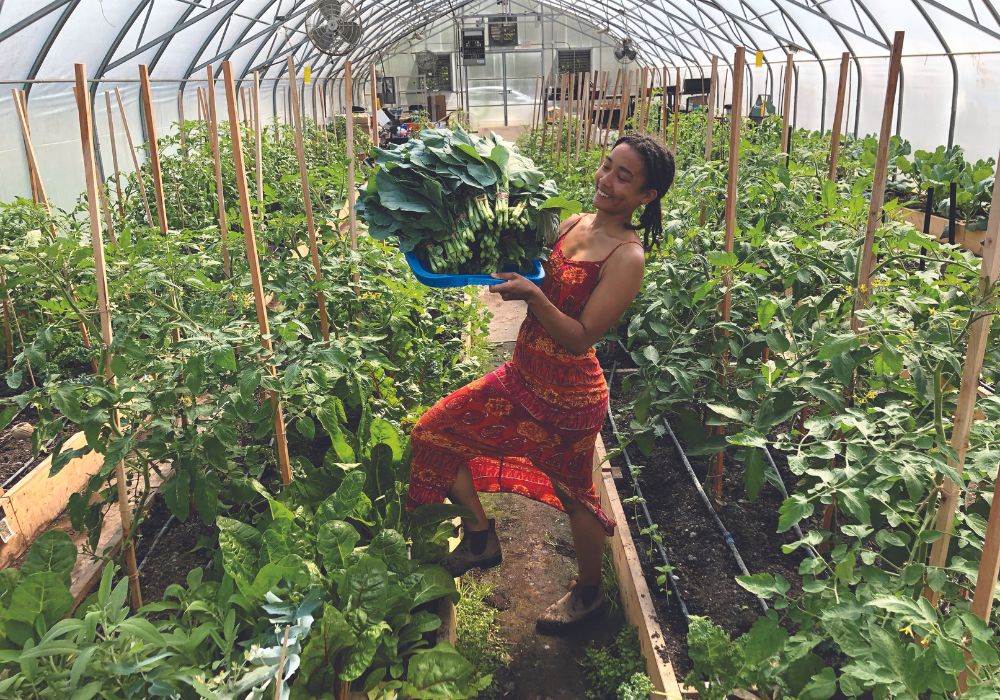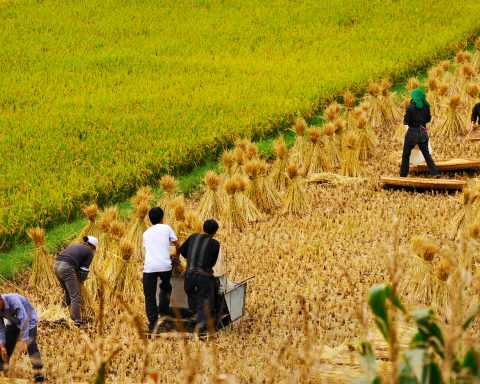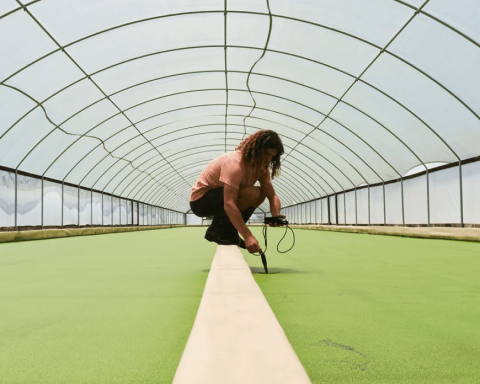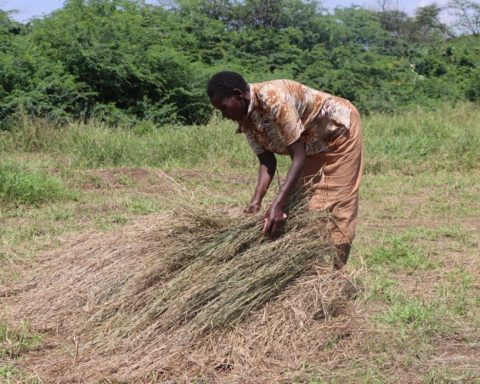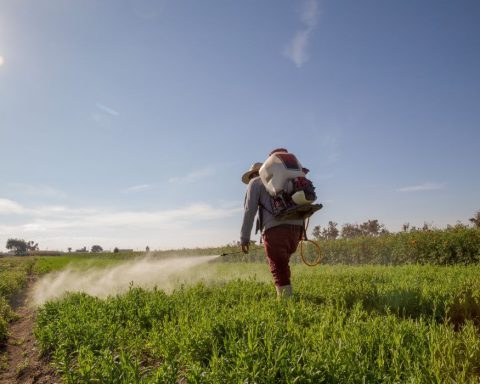A year after Cheyenne Sundance started her own urban farm in north Toronto, she began offering a paid farm-school program to pass on what she had learned. She quickly noticed that most of the people who attended were racialized youth from underprivileged backgrounds who struggled to afford the program.
“The majority of them sent me emails to say, ‘Can I pay you maybe 50 bucks this week and 50 bucks that week because I can’t afford it, but there’s no other place I can learn these skills,’” Sundance says. She started feeling uncomfortable about charging for the program. “A lot of these people grew up in the same lifestyles as me where you didn’t have a lot of money laying around,” she says. Sundance, 27, didn’t come from a farming background but experienced food insecurity firsthand growing up in the Toronto suburb of Etobicoke. She fell into the agriculture industry after doing some farm work on her travels through Cuba, where she learned about the concept of food justice. Still, finding an entry point into the industry proved difficult initially as many available training or educational programs were either unpaid internships or expensive farm schools.
Now Sundance Commons, the non-profit arm of her for-profit Sundance Harvest farm, has a new-farmer training program to teach young people, at no charge, practical skills about farming and how to start their own farms.
Sundance and her partner Jon Gagnon founded the non-profit in 2019 and originally called it Growing in the Margins. They have offered free support for new farmers in the past through their incubation program and workshops while also providing tools and resources. However, the new-farmer training is the first comprehensive educational program at Sundance Commons, providing participants a wide array of tactile skills and knowledge over 15 weeks.
Thanks to new grants that Sundance Commons secured, the non-profit is able to have two cohorts of 20 participants each year for 2024 and 2025. So far, the applications are all from people 29 and younger, more than 50% are Black, and 95% are women or femme-identifying people.
Sundance Commons began as an 800-square-foot plot of land at Downsview Park and now operates out of four farm locations all within an hour of Toronto. The Rexdale property, located in a diverse, low-income neighbourhood, is where the majority of the new-farmer training program happens, since, unlike most farms, it’s on Toronto’s transit line. “When I started farming, I didn’t drive, and having a TTC-accessible location that has a working greenhouse, that has all the bells and whistles, that has a market garden, allows these amazing youth to really see how things work and to actually see it close by,” Sundance says.
Participants learn how to operate tractors, prepare beds, compost, keep bees, raise poultry, operate irrigation systems, and grow a variety of vegetables and cover crops. The program also provides mentoring and checking in about participants’ future goals in the agriculture industry, giving them the technical skills needed to either get jobs in the industry or start their own farm businesses.
When I started farming, I didn’t drive, and having a TTC-accessible location that has a working greenhouse, that has all the bells and whistles, that has a market garden, allows these amazing youth to really see how things work and to actually see it close by.
-Cheyenne Sundance
A critical element of the new-farmer training is that at the end of the program, participants can potentially gain access to land to kick-start their own operations. “That’s part of seeing it in a multi-year phase because farming is not like other kinds of industries – you kind of need time,” says Gagnon, land access coordinator at Sundance Commons. “It might take even more than a season to get a business set up; it might take three to five years.”
Sundance and Gagnon explain that the barriers to entry are high for young people interested in farming in Ontario. The options to learn are limited to expensive farm-school courses that could cost thousands of dollars or unpaid internships on farms.
Traditionally, farmland and knowledge has been passed down over generations. All that has changed. Today, many young people interested in farming don’t have that access to generational knowledge of farming or family land. And as a result, there are very few pathways to crack into that world and find a network of people who can help.
According to a 2023 RBC report, 40% of Canadian farmers plan to retire in the next 10 years, and more than half of them have no plan for their land post-retirement. That means farms will face a dire labour shortage in the next decade without a younger generation of farmers ready to flow into the industry. Today, only 4.1% of Canada’s farm operators identify as racialized or Indigenous. The inaccessibility of the agricultural industry poses a huge gap for its future. “So we kind of build the connections [for young farmers] to basically try to fix that gap that has kept it inaccessible for so many,” Gagnon says. That’s a big part of why the training program “works so symbiotically with the land access,” he adds.
For Selina-Rachel Mendez, access to a support network at Sundance Commons was the real game-changer to build her beekeeping and honey business, The Drip. When she decided to pursue beekeeping, Mendez found that many workshops were dedicated to people who were just curious about it or wanted to keep bees as a hobby, and so touched only on surface-level knowledge.
“I needed someone to really sit me down and be like, ‘Hey, here is how you need to move within a hive, here is what you need to look for to make sure that your hive is healthy, here is what you need to do throughout the course of the season to make sure that you are being sustainable and ethical with your beekeeping,” she says.
Through Sundance, Mendez was also able to get free land access for her hives in exchange for a portion of the honey she produced.
“When you have those connections and you have that network and that support system, it really helps you stay afloat,” she says. She now also teaches beekeeping workshops and will be doing sessions for the new-farmer training program at Sundance Commons.
For Gagnon, training marginalized youth interested in agriculture is part of a bigger picture of ensuring that young farm workers have equity and agency, he explains. “They are the most important part of the food system.”
Neha Chollangi is a freelance journalist based in Montreal, where she covers grassroots social movements and environmental activism.


